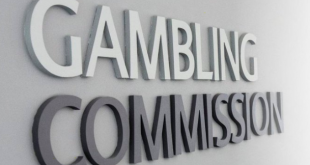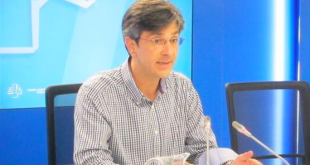Cross-operator deposit limits remain a key part of plans to strengthen safer online gambling provision in Spain, but Mikel Arana, Director General of the Dirección General de Ordenación del Juego (DGOJ), admits that there are significant obstacles to overcome before the scheme becomes a reality.
Arana used a keynote address at the Gaming in Spain conference in Madrid to detail both the plans and the reasons why the Spanish Government and regulator believe the improvements are still needed.
He described Royal Decree 176/2023 on Safer Gaming Environments as introducing a “new approach to player protection” that would establish a common minimum standard, rather than relying on each operator’s own policy.
“Some of you may think – and I can agree with you – that the message of responsible gambling of your companies goes beyond what the Royal Decree requires, so there’s no need to implement the new regulation,” said Arana.
“In that case, congratulations. Both for your high standard of corporate social responsibility and, for that specific reason, the adaptation of your system to the Royal Decree will be quick, easy and cost effective.
“However, and I hope you may agree with me now, some operators in the market are far from what the Royal Decree has now made mandatory. This is not just a perception; contrary to what we have heard over the last two years, the Ministry of Consumer Affairs does not regulate based on perception, but on data.”
He went on to outline DGOJ statistics that show the top 1% of active online players account for more than 40% of GGR, with the top 5% generating more than 80%. Arana added that operators’ online revenues had grown by 75% between 2017 and 2022, despite player numbers only growing by around 200,000 to approximately 1.5 million in that period.
The data “certifies that the imbalance in the Spanish market has increased exponentially in the recent years”, he said, and that had prompted the authorities to act.
Arana went on to explain that the measures in the Decree would create an environment with “different protection measures for up to five different types of players, depending on their behaviour”.
Operators will have to treat the five categories – all players, intensive players (people who have lost €600 a week for three consecutive weeks), young players (aged 18-25), players exhibiting risky gambling behaviour, and self-excluded players – differently in terms of how they communicate with them, how and how much they can deposit, and access to promotions.
The plan emphasises the importance of early intervention to keep players safe. This is particularly true in the case of young adults, who will be classified as intensive players and subject to interventions if they lose €600 a week for three consecutive weeks.
Arana explained that this was because studies showed “early initiation into gambling activities increases the likelihood of developing a gambling disorder or is an indicator of the severity of such a disorder if it is manifest”.
Perhaps the most attention-grabbing of the plans detailed by Arana was the cross-operator deposit limit; an idea that has been discussed in other countries and found to be exceptionally challenging in terms of regulation, technology and data protection.
The DGOJ’s attempt to make it a reality was inspired by findings in its own market data.
“56% of the multi-operator players who have exceeded the maximum limit are part of the percentage of big losers,” Arana said. “There is an undeniable relationship between surpassing the limit, doing so in more than one operator, being part of the group of people who lose the most money, and showing symptoms of potentially having a gambling problem.”
The cross-operator deposit limit requires both technical and regulatory work before it can be implemented. While Arana confirmed that technical developments were heading in the right direction, he was less definitive about the legal changes.
“The regulatory aspect will take a little longer, as it involves the reform of Royal Decree 1614/2011, and we know what that implies,” the Director General explained.
“However, as we have proven on previous occasions, we are not so concerned about the timing as we are about ensuring that things are done with the highest degree of dialogue possible, and allowing everyone to adapt to the changes.
“In any case, it’s worth emphasising that we see the cross-operator deposit limit system as an additional tool that we will make available to the players with the aim of providing a safe gaming environment. It is intended to be a complementary system to (individual) operator limits and, of course, voluntary for the player.”
He added that the portal through which players would set their cross-operator limit would be managed by the DGOJ, and that only the regulator and the individual would know what their limit was. Operators will only receive input from the regulator when checking whether they can accept a deposit from a certain player.
Arana described the scheme as “the final piece of the puzzle” in the regulator’s efforts to use technological and regulatory tools to improve consumer protection.
Is the bold idea achievable?
The plan received the tentative backing of Silverback Advocacy’s Juan Espinosa, a former Director General of the DGOJ.
During a panel titled ‘Looking Back at 10 Years of Regulated iGaming’, he described it as an “interesting idea” and the regulator as “very bold” to have taken the decision, adding that he thought “the data that (Arana) showed is compelling enough to make it worth a try”.
However, Espinosa expressed concerns about whether the DGOJ would have the budgetary resources to develop the “powerful, reliable system” required, and also raised the issue of who would be liable if things go wrong and a player is able to make a deposit that takes them above their limit.
“The implementation issues for me are going to be strong and challenging, which leads me to think that it would be a shame if this remained voluntary in four or five years,” he concluded.
Miguel Figueres Moreno of the Asociación Española de Jugadores de Apuestas Deportivas (Spanish Association of Sports Betting Players) raised a different concern during a Q&A after Arana’s keynote, when he queried whether the cross-operator deposit limit would do anything to protect those who gambled both online and in Spain’s vast retail betting and gaming sector.
Arana replied: “It’s another tool. There must be different tools that we can use and this is one of them. If it was only this one, probably it would have no use at all, but we have a compendium of different measures.
“So we think at the end, all of them can have some success and we’ll have a safer gambling space at the end. That’s our purpose.”









